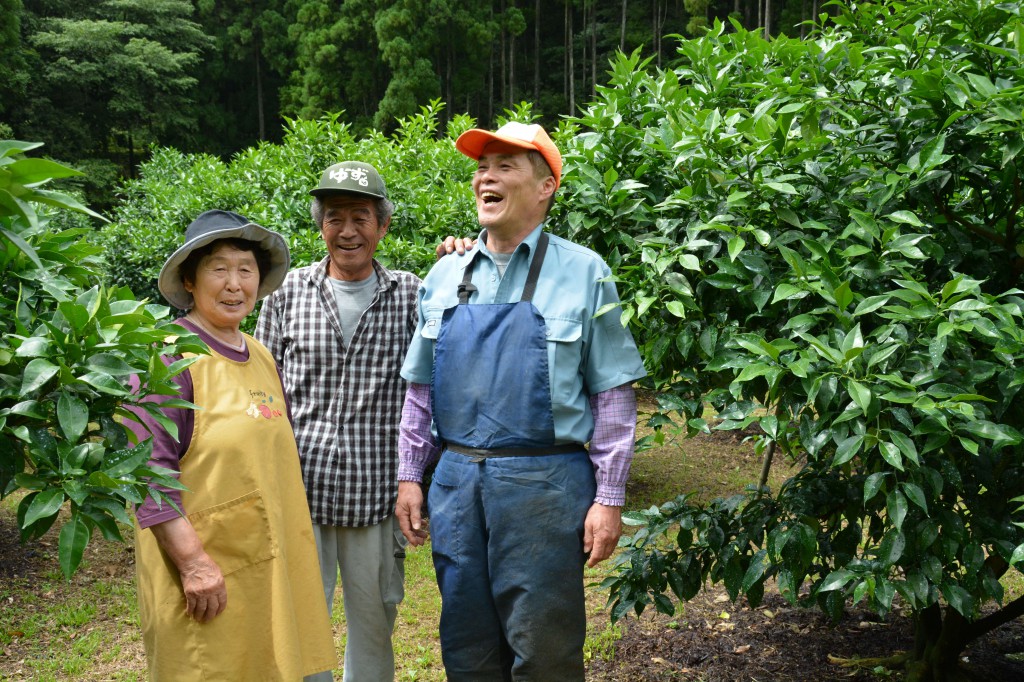The village of Umaji, Kochi Prefecture, located on the eastern prefectural border about a two-hour drive away from the city of Kochi, boasts annual sales of JPY3.4 billion with products using Yuzu citrons grown in the area. JA Umajimura, an agricultural co-operative in the village, employs 86 villagers, roughly 10 percent of the total population of 942 as of June 30. Businesses centered on direct sales of Yuzu products have become the center of the village’s economy, and JA has worked on developing new products to continue fascinating consumers nationwide. Establishment of a stable and sustainable market has also encouraged farmers to increase Yuzu production.
As much as 96 percent of the village is covered by forests, out of which 75 percent is state-owned. JA Umajimura, which was founded in 1948, has been engaged mainly in businesses related to forestry, such as sales of charcoal and Oriental paper bush used to produce traditional Japanese paper. Along with the decline in the forestry industry, however, two local forestry offices in the village were integrated in 1979, and the village was faced with the need to develop a new industry.
Villagers directed their attention to Yuzu, which has been grown in the area as an agricultural product rooted in their lives. But since the village is located in a mountainous area with limited farmland and most of the villagers are part-time farmers, they don’t have enough time to take the necessary steps to market Yuzu as fresh produce, such as conducting disease prevention measures seven to eight times a year and managing soil fertility.
Yuzu grown in Umaji is rough-skinned and does not look attractive enough to compete in the fresh produce market. JA started full-scale marketing of Yuzu juice in 1975, but it was traded at low price because of excessive supply within the prefecture.
Seeing little prospects in marketing within Kochi, JA officials led by Mochifumi Totani, who later became the head of the organization, began seeking new markets in metropolitan areas around 1980.
For more than a decade, they loaded their vehicles with Yuzu products, drove all night and sold them at food fairs in major consumption areas such as Tokyo and Osaka. Sometimes much of the products were left unsold and had to be brought back.
They finally saw a ray of hope when Yuzu no Mura, their Yuzu-flavored soy sauce, won a grand prize in a local specialties fair of 101 villages held at a major department store. This led to a great business opportunity for Umaji.
Masayoshi Sawamura, a specially appointed professor of Kochi University’s Tosa Food Business Creator Project Team, attributes the success of JA Umajimura to the fact that it focused on processing from the beginning. By doing so, they managed to market value-added products while keeping production costs low, he says.
Sawamura points out that Umaji managed to revitalize the community by conducting everything from production and processing to sales, creating employment opportunities and source of income for villagers including young people.
He also says JA Umajimura’s strength is that they have always been innovative and developed new products one after another.
Although they have made many big hits including Yuzu no Mura and Gokkun Umajimura, a drink containing Yuzu juice and honey, they continue introducing new items every year. “If we don’t have new products, consumers will lose interest in us,” says Totani. Now they offer nearly 70 products, and their sales keep increasing from JPY1 billion in 1993 to JPY2 billion in 1998 and JPY3 billion in 2005.
Katsutoshi Hayashi, 69, who grows Yuzu in a 1-hectare land, cleared some forests to expand his farmland. “Yuzu is an industry which saved Umaji from depopulation,” Hayashi says. “It is no use producing Yuzu if JA does not make efforts to sell it.”
(July 29, 2014)


